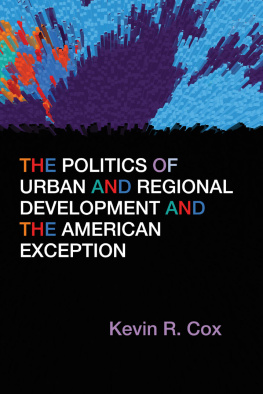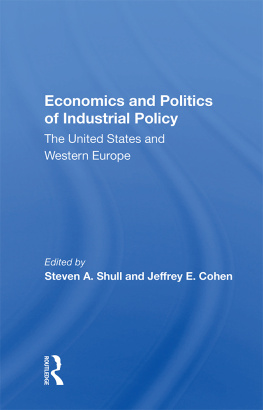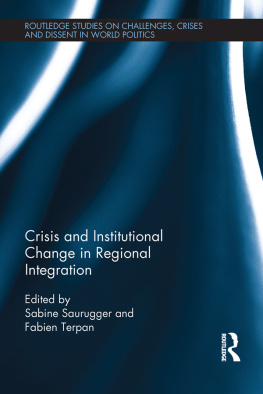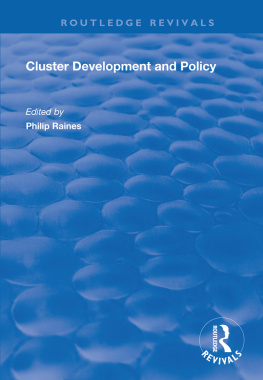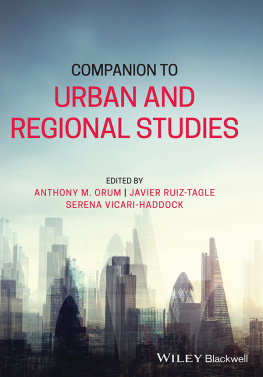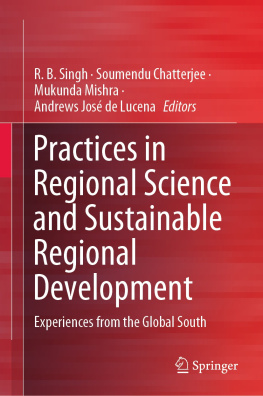


Copyright 2016 by Syracuse University Press
Syracuse, New York 13244-5290
All Rights Reserved
First Edition 2016
16 17 18 19 20 21 6 5 4 3 2 1
The paper used in this publication meets the minimum requirements of the American National Standard for Information SciencesPermanence of Paper for Printed Library Materials, ANSI Z39.48-1992.
For a listing of books published and distributed by Syracuse University Press, visit www.SyracuseUniversityPress.syr.edu.
ISBN: 978-0-8156-3456-0 (hardcover)
978-0-8156-3439-3 (paperback)
978-0-8156-5361-5 (e-book)
Library of Congress Cataloging-in-Publication Data
Available upon request from publisher.
Manufactured in the United States of America
Table of Contents
Guide
Page List
Contents
Illustrations
Tables
Acknowledgments
Numerous people helped in different ways in the preparation of this book and going back a very long time. Not least, I want to record the continuing inspiration I have drawn from numerous students whom I have worked with on their graduate research. These include: Delphine Ancien, Golden Jackson-Mergler, Andy Jonas, Felicity Kitchin, Andy Mair, Jeff McCarthy, Emily Nosse-Leirer, Bae-Gyoon Park, Michael Sutcliffe, and Andrew Wood. They have taught me a great deal, perhaps more than they can ever know. Thinking through the problems posed in the book has benefited hugely, and in different ways, from the work of Jamie Gough, David Harvey, Ray Hudson, Ron Martin, and Richard Walker. Jim DeGrand of the Geography Department at Ohio State University prepared the figures in both timely and original fashion. Syracuse University Press has been brilliant. Deanna McCay commissioned extremely useful reviews, and I owe the reviewers a debt of thanks. Suzanne Guiod then brought the project to fruition with careful and sympathetic guidance. Elizabeth Myers helped to make everything much clearer through her superb copyediting. Finally, and certainly not least, I want to acknowledge the support given to me in the form of a fellowship by the Guggenheim Foundation. Since this was well over ten years ago, they can be excused if they have long given up ever seeing any concrete results from their support. They have been extraordinarily patient and I am grateful for that, too. I was clearly far too optimistic in my original plans. Working out the ideas took much longer than I ever would have imagined. I hope that it was worth the wait.

A Very Peculiar Practice
Context
In the United States, the public interest in issues of what has come to be known as local economic development is nothing short of extraordinary. Americans may take political drama in this arena for granted, but the fixation seems unusual to those whose experience is rooted in other countries. This major focus of local and state government attracts remarkable degrees of US media attention: the steady dribble of news items on controversies around rezonings, highway widenings, annexations, and the provision of tax incentives to new investors is, for Americans, a familiar one. Equally indicative are the various referenda on development issuesto approve the sale of bonds for new convention centers, to rescind rezoning decisions, and the likeon which Americans are asked to vote and whose contestation is equally highly publicized.
This is a politics that has also attracted more than its fair share of social science interest. It is a central theme in urban studies, where it has found a series of distinct expressions, such as the politics of downtown revitalization, of suburbanization, or of inward investment and plant closures. It is, I will want to claim, utterly distinctive, and the attention it attracts contributes to that distinctiveness. It is part of the warp and weft of local life in a way that is duplicated nowhere else in the developed world. This is the American politics of urban and regional development, a politics whose basic lineaments first appeared as a complex whole subsequent to the Second World War and which endures. It has forms, material and discursive, that make it distinctive nationally as well as historically. There is nothing quite like it in the advanced capitalist countries. In this book, I set out just what that politics amounts to, demonstrate its distinctiveness, and then provide an explanation. The experience of the Western European countries will provide the necessary foil.
To briefly set the scene: It is a politics generated by intense local interests of a business sort. These focus on a struggle for that component of revenue which is rent: rent derived from both land and from the improvements to it. The utilities, the property developers, and local governments are typically at the forefront, but so tooto varying and lesser degrees, depending on the issueare the banks, small retailers, builders, and local newspapers and media empires. The balance between rent and other sources of revenue varies, but for all of them it is a central consideration: more so for the property companies and the developers, certainly, but a very considerable proportion of the revenue streams of utilities, retailers, local media, and banks depends on exactly where they are, and changing that where-ness has been an enduring preoccupation.
For these businesses, space relations must occur in a particular place by virtue of the fact that they are so locally embedded as to find it difficult, even impossible, to take advantage of growth elsewhere. Accordingly, coalitions may form around particular development initiatives and programs to attract final users, whether industrial, commercial, or residential, or simply to attract investors with no particular idea as to where they will be accommodated. To facilitate this investment, various financial and regulatory incentives are typically offered, and these commonly ignite so-called bidding wars with similar coalitions of forces elsewhere. But the coalitional form of this politics is not essential. Coalitions cannibalize each other, relegating particular places to yesteryear; but so too do individual developers as they struggle with each other for the various infrastructural investments that the state can provide and which will make all the difference to the rents that they can extract. And there again, this is a class politics. A common scenario is one in which the growth protagonists try to socialize the costs of their projects while at the same time privatizing any and all of the subsequent benefitssomething that can generate opposition from the more popular forces footing the bill. The federal government or the individual states may then be called on for some sort of fiscal or regulatory relief. But this always risks the opposition of growth interests elsewhere that stand to lose.
Most significant of all, bathing the US phenomenon in its distinctive light, this is a politics of capitalist development, and it is this which allows contrast and comparison with its trans-Atlantic cousins. Capitalism and its inherent logics are crucial to the story told in this book. Capitalism has turned out to be
Next page
